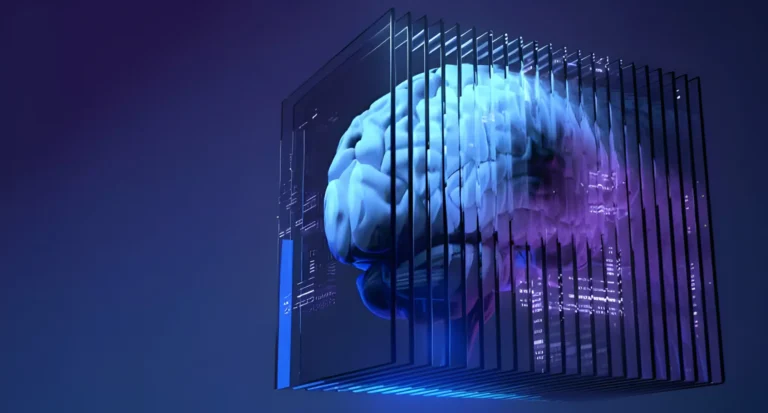Challenges and Benefits of Data Modernization
As the digital economy continues to grow at a high speed, organizations often feel mounting pressure to innovate, adapt, and deliver exceptional experiences to customers. With the realization of using the data efficiently, organizations are increasingly turning to data modernization as a strategic initiative.
By modernizing data infrastructure, businesses can unlock multiple opportunities given valuable insights, better operational efficiency, and unstoppable growth. Yet, the promise of multiple opportunities comes with a maze of challenges that must be navigated.
The journey to modernization is full of happy benefits but with the spice of a few challenges. In this blog, we’ll embark on a voyage to explore the landscape of data modernization, uncovering its needs, benefits, roles, and challenges.
What is Data Modernization?
Data modernization is like giving your business a future-ready digital makeover. It is all about upgrading how you can handle and make sense of your data. In simpler terms, imagine you are running a chain of cafes across different cities. Each café has its style of marketing and keeping track of things like sales, inventory, and maybe feedback. It is quite simple if the user needs to take care of only one café, but as your business grows in the future, it might get quite complicated to manage all the scattered data.
That’s where the need for data modernization occurs. It’s like joining all the pieces of your puzzle to make it easy to handle and clear to the mind. With modern cloud technology, you’re not just upgrading your storage, but you are future-proofing your business for even more growth ahead.
Why is Data Modernization Considered?
For every organization, the heart of operations lies within its data management system. Regardless of its size or industry, the ability to handle and analyze data accurately is a parameter to success. However, apart from this fact, still, in today’s time, many businesses may hesitate to invest in data modernization due to the complexities involved.
While early-stage startups may initially postpone the thought of involving data modernization, however, on the other hand, for larger organizations with a decade-long legacy it acts as a necessity. As organizations grow, the need to handle the data increases. Let’s dive into some key components of data modernization:
Unified data repository (UDR):
Gathering data from various resources and putting it all in one spot, such as in a database or data warehouse, can do a great deal to improve data accessibility. ETL and ELT pipelines can be used to gather data and then converted into a consistent format to get stored in one central location.
For instance: Xiatech’s platform collects data using smart connectors and stores it further in UDR, creating a single trusted version of a combination of various aspects like customers, products, sales, and inventory.
Data APIs:
Implementing APIs and middleware to simplify the process of exchanging data and communication between the systems.
For instance: Crunchbase provides an extensive API that allows developers to integrate company data into their linked web and mobile applications. It later helps to provide information about companies, funding rounds, acquisitions, and more.
Analytics and AI:
Keeping all your data in one place enables the organization to analyze past data and predict future trends using machine learning models.
For instance: DefiQuant, a London-based organization leverages AI and machine learning to execute the sell-high and buy-low strategies in cryptocurrency trading.
Data Literacy:
Simplifying storing and utilizing machine learning models is not enough for modernization. It is an important factor for organizations to promote a data culture by educating various departments on interpreting data insights and in the future improving business decisions.
For instance: Kentik, is an organization that uses data literacy to analyze network data, enabling better insights into network performance and security.
What are the Benefits of Data Modernization?

Embarking on the journey of data modernization unlocks the list of numerous exciting benefits for organizations looking to thrive in today’s data-driven landscape. Let’s explore a few of the benefits of data modernization in detail below:
Improved data accessibility:
By centralizing data from multiple sources into a single repository organizations can allow users to access critical information making the decision-making process easier.
Enhanced scalability:
Modernized data infrastructures are designed to scale efficiently, upgrading the volumes of data without compromising the performance.
Increased Agility:
With modern data tools and technologies, organizations can quickly adapt the business changes, needs, and market demands, enabling the innovation and decision-making process easier and faster.
Better data quality:
Data modernization initiatives often ask for data cleansing and standardization processes, resulting in improved data quality and process.
Advanced analytics capabilities:
Modern data platforms enable organizations to opt for the advanced features involved with machine learning and AI to predict better future insights.
Challenges of Data Modernization
Navigating the path of data modernization presents both opportunities and challenges for organizations that are dreaming of staying ahead in today’s competitive world. While modernizing data infrastructures offers multiple benefits it also comes with a few sets of hurdles to overcome. Let’s explore below a few of the challenges of data modernization:
Complexity:
Setting up modern data systems can be quite complex and thus requires the expertise knowledge and skills within various technologies and methodologies.
Data Migration:
Moving data from legacy systems to modern platforms is never an easy task, it requires days of planning and smooth execution to ensure data integrity and minimize disruptions.
Cost:
Data modernization initiatives often ask for significant investments in new technologies, tools, and training which can later impact the overall budget.
Legacy Systems Integration:
Integrating modern data systems with legacy systems is quite complex and challenging at the same time.
Data security:
Modern data systems may bring up new security risks, such as data breaches and unauthorized access, calling for strong security measures to mitigate.
Role of Cloud Computing in Data Modernization
Cloud computing plays a vital role in data modernization by offering various infrastructure solutions like- scalability, flexibility, and cost efficiency. While below are a few reasons to identify how cloud computing contributes to data modernization:
Scalability:
Cloud platforms provide the capability to scale resources according to needs and demands. The scalability allows organizations to handle growing volumes of data without the need for any upfront investment in hardware.
Flexibility:
Cloud computing offers a wide range of services, allowing organizations to choose the best that suits best to their needs. The flexibility enables them to adopt modern data technologies and techniques customized according to specific requirements.
Cost-effectiveness:
Cloud computing eliminates the need for organizations to maintain and upgrade on-premises hardware costs. This process helps in cutting down on capital expenses. With the pay-as-you-go payment models, organizations can get the maximum benefits of it.
Conclusion
Data modernization presents both opportunities and challenges for organizations in today’s digital landscape. Undoubtedly, it offers a wide range of benefits such as improved data accessibility and scalability. But benefits, often come up with a few hurdles such as complexity and data security concerns. However, with the strategic adoption of cloud computing and modern data tools, businesses can overcome these challenges with ease and can explore the full potential of data assets resulting in better growth and innovations.
Experience the power of data modernization with AAHENT as your trusted partner. AAHENT’s innovative solutions and unwavering support ensure a smooth and successful modernization journey. With AAHENT’s cutting-edge solutions and personalized approach, it’ll become easy for you to make better and smarter decisions. Let’s travel on this journey together with AAHENT. Contact us now!

